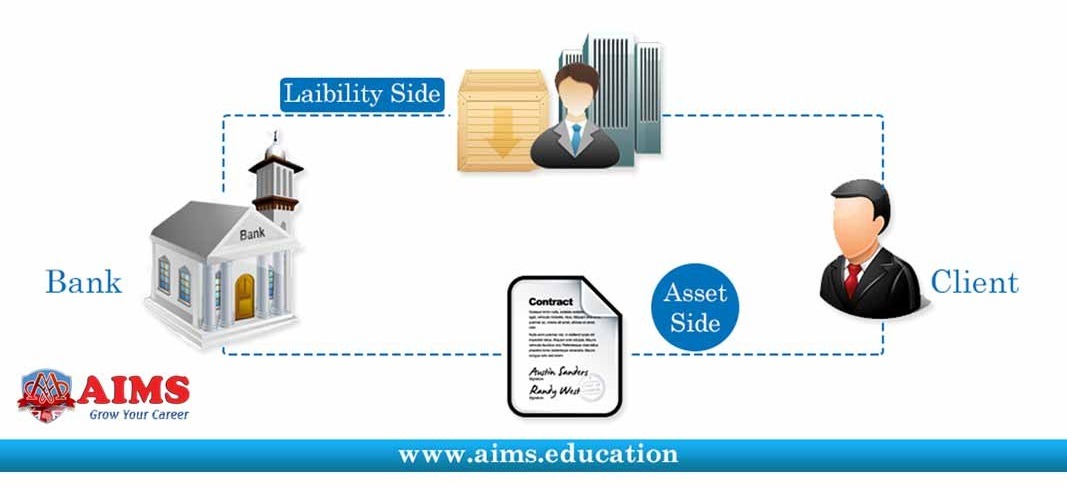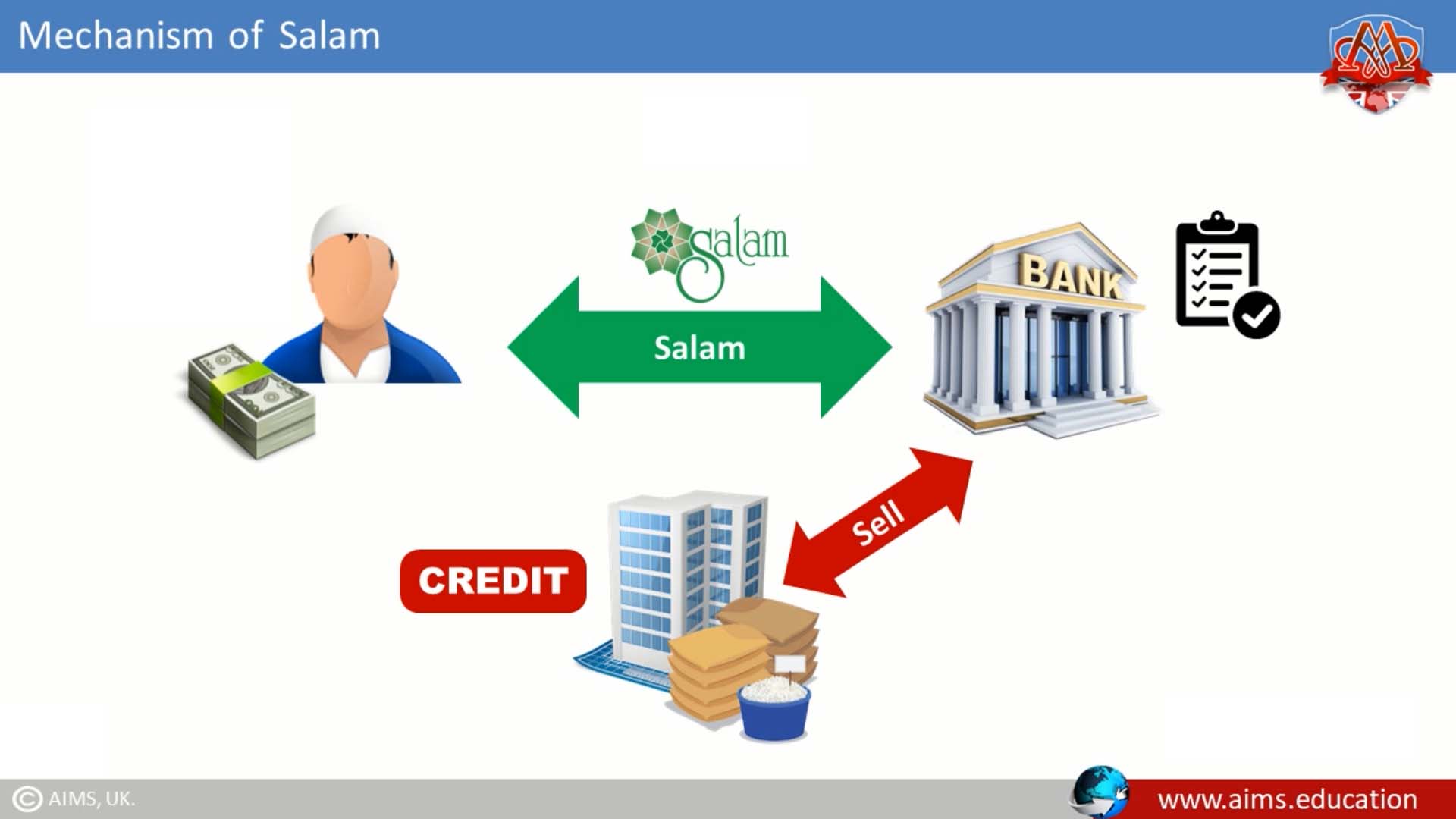What is Salam Contract?
The Salam contract, often referred to as ‘Salam financing’ or “بيع سلم”, is a sale contract whereby the purchaser pays the price in advance and the delivery of the subject matter is postponed to a specified time in the future”. Salam in Islamic banking may also be defined as: “A type of sale in which the seller undertakes to supply goods at a future date, against an advanced spot price, paid fully in cash”.
Comparison of Salam Contract with General Rules for Sale in Islam:
According to general Islamic Shariah rules, a sale must fulfill the following three conditions. However, only the Salam and Istisna are exceptional from these conditions:
- Commodity for sale must exist;
- The seller should acquire ownership of that commodity; and;
- The commodity must be in the physical or constructive possession of the seller.

Applications of Salam in Islamic Banking:
It is mostly a mode of finance for farmers and small traders. It is used by micro banks and financial institutions to support small industries. It is mostly used for:
- Agriculture financing;
- Working Capital Financing;
- Commercial and industrial financing;
- Export Financing; and;
- Operations and capital cost financing.

What is Parallel Salam?
After the execution of a Salam agreement with one party, the buyer or seller executes another contract with a third party. Parallel Salam contract is allowed with third party only. They must be two different and independent contracts, and these two contracts cannot be tied up.
Parallel Salam Example:
Let us understand it with the help of an example:
- Bank purchases 500 Bags of Rice from “Ali” through this contract, with full prepayment and to be delivered on June 30th.
- “Ali” delivers 500 bags of rice to the Bank on June 30th.
- The bank sells this commodity to a third party, called a “Company”, on credit.
- After taking its delivery on an agreed date, Bank delivers it to the “Company”.
- After taking delivery from the Bank, the “Company” signs a promissory note against payment, on an agreed-upon specified time.
This lecture is a part of the AIMS Islamic banking certificate course and diploma Islamic banking and Islamic finance programs. AIMS’ curriculum includes all AAOIFI-compliant Islamic finance products and instruments that Islamic Financial Institutions use.

Role of Salam and Parallel Salam Contracts:
These contracts offer Shariah Compliant financing mechanisms, especially in agriculture financing, to empower Shariah Compliant and Ethical financial solutions to Muslims and Non-Muslims, globally. They eliminate the prohibited elements, such as riba, gambling, and uncertainty, which are prohibited in Islam and against Islamic banking principles.
Frequently Asked Questions
Q1: What is a Salam contract in Islamic banking?
Salam is a forward sale where the buyer pays in full now for goods delivered later, with detailed specs set upfront.
Q2: How does Salam financing work in practice?
The bank prepays for specified goods to be delivered on a fixed date and later sells them to clients or the market.
Q3: What are the key conditions of a valid Salam transaction?
Full advance payment, precise specifications, and a defined delivery time/place for goods commonly available at delivery.
Q4: When is Parallel Salam used and why?
To manage delivery and price risks by independently arranging a second Salam as seller with matched quantities and dates.
Q5: What mistakes should be avoided in Salam contracts?
Vague specs, partial prepayment, goods not typically available at delivery, and linking obligations across Parallel Salam deals.
Q6: How is delivery handled and what if it is delayed?
Deliver on the agreed date/place; use performance guarantees or Parallel Salam to mitigate delays and compensate actual losses.
Q7: Which goods are suitable for Salam?
Standardized, fungible goods—e.g., agricultural produce or commodities—that can be precisely defined and delivered later.
Q8: How does Salam differ from Murabaha or Istisnaʿ?
Salam: prepaid for future delivery; Murabaha: cost-plus sale of an identified asset; Istisnaʿ: made-to-order with flexible payment.
Q9: Can Salam goods be sold before delivery?
Not directly; instead, use a Parallel Salam to arrange an independent forward sale that settles upon delivery.
Q10: What are the benefits of Salam financing?
Producers gain upfront liquidity; banks access real-sector assets and manage risk via Parallel Salam and careful inventory planning.
